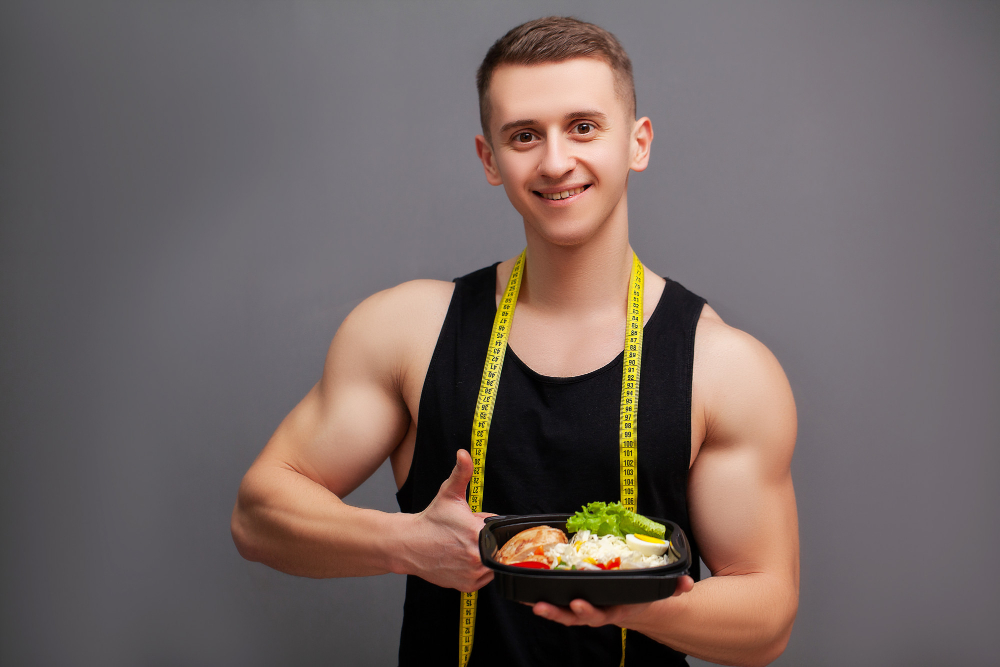If you’re looking to build muscle, you’ve come to the right place. Protein is the building block of muscle. It helps repair and rebuild muscle tissue, and it’s essential for any serious weight-training program.
But building muscle isn’t as easy as just eating some meat and calling it a day. In order to optimize muscle growth and strength, you need to eat the right kinds of protein and other muscle-building foods.
If you’re serious about bulking up, you need to eat a lot of meat and protein-rich foods. The more meat and protein you eat, the more your body will build muscle.
Here we’ll explore how much protein you need to build muscle, what types of protein are best, and the top protein-rich foods for bulking.
How Much Protein Do You Need to Build Muscle?
Women between the ages of 18-25 need about 2g of protein per kg body weight per day to optimize muscle building.
If you’re a heavier person, you will need to consume more protein to build muscle. For example, a woman who weighs 60kg (132lbs) will need about 56g of protein daily to maximize muscle growth.
Men between the ages of 18-25 need about 2.2-2.5g of protein per kg body weight per day to optimize muscle building and recovery.
If you’re a heavier person, you will need to consume more protein to build muscle. For example, a man who weighs 70kg (154lbs) will need about 68-75g of protein daily to maximize muscle growth.
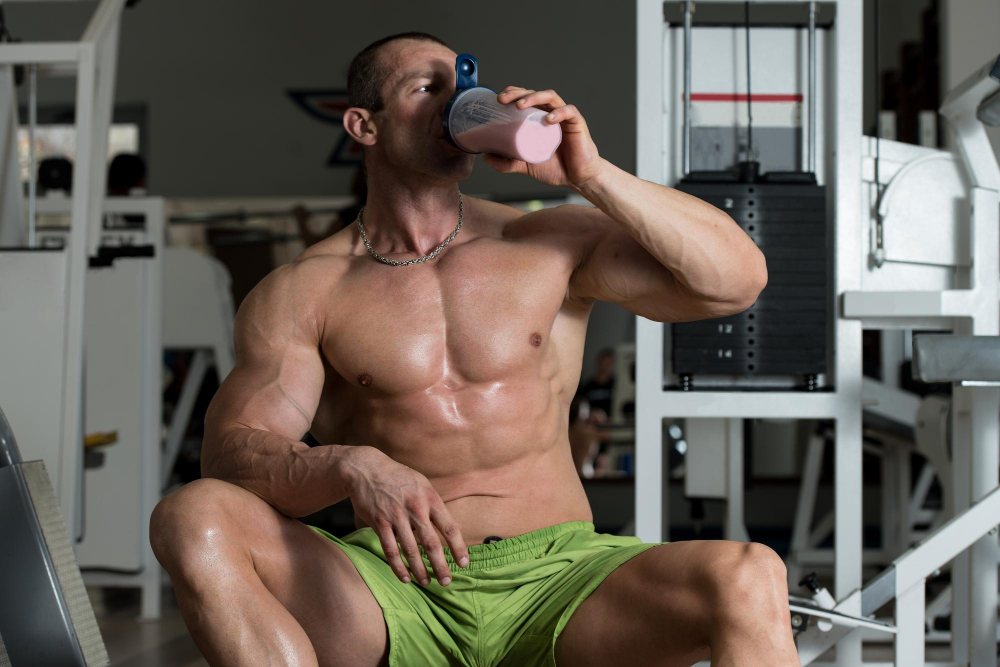
How to Build Muscle with Protein
The main way to build muscle is through resistance training, also known as strength training or just lifting weights. You can gain muscle by performing sets and repetitions at a high intensity.
New muscle is generated through a process called hyperplasia. This is when existing muscle fibres get a chance to grow and the number of muscle fibres increases.
New muscle can be formed through a process called hypertrophy. During this process, the number of muscle fibres doesn’t increase but the thickness of the individual muscle fibres get larger.
Types of Protein
Proteins are made up of amino acids, and different proteins have different amino acid compositions. There are many types of protein, but the three most important ones for building muscle are:
Animal-based proteins: These are made from animal sources such as beef, chicken, fish, milk and eggs. They contain essential amino acids in the right proportions to help build muscle.
Plant-based proteins: These are made from plant sources such as soy, peanut, oats and rice. They contain essential and non-essential amino acids in the right proportions to help build muscle.
Mixed proteins: These are protein shakes that contain both plant and animal-based proteins. They provide a balanced amount of amino acids for muscle building and recovery.
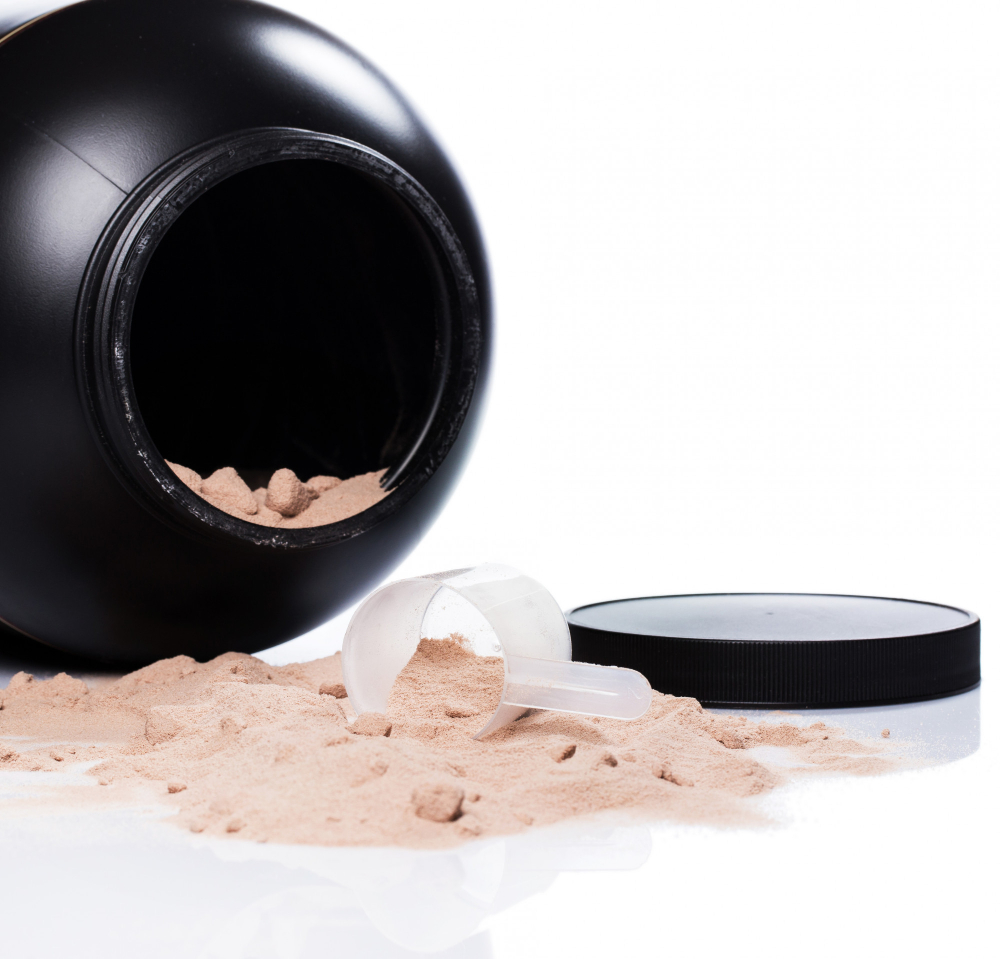
Why Is Protein so Important?
Protein is an important part of a healthy diet for many reasons. Not only does it provide amino acids that are needed for muscle and tissue growth and repair, but it also helps to regulate your blood sugar, keeps your metabolism running, and supports eye, skin, and hair health.
In order to stay healthy, it’s important that you get enough protein. The recommended daily allowance (RDA) is between 46 and 64 grams for an adult. However, the average healthy adult needs only about half that amount. Athletes and active individuals need even less—about 30 grams daily.
The Top 12 Protein Rich Foods
To maximize muscle growth, you need to eat a variety of proteins throughout the day. Though most protein shakes contain similar ingredients, these foods have the most protein per serving.
Peanut Butter
When it comes to protein, peanut butter is king. It’s loaded with protein, and because it’s so high in calories, it can be a great meal substitute for those looking to lose weight.
That being said, you don’t want to just eat peanut butter straight from the jar – that would be anything but appetizing. Try using peanut butter as part of a healthy sandwich or wrap, or even mix it into a shake!
Greek Yogurt
Greek yogurt is a great way to get in some protein. With 20 grams of protein per cup, it’s a great snack or meal replacement for those looking for a quick, filling fix.
Greek yogurt is also very high in calcium, which makes it perfect for anyone looking to improve their bone health.
Brown Rice
Brown rice is a great source of carbohydrates and protein. One cup contains 4 grams of protein, which is about a third of what an average person needs in a day.
Brown rice can be used in many recipes, making it easy to incorporate into your diet plan.
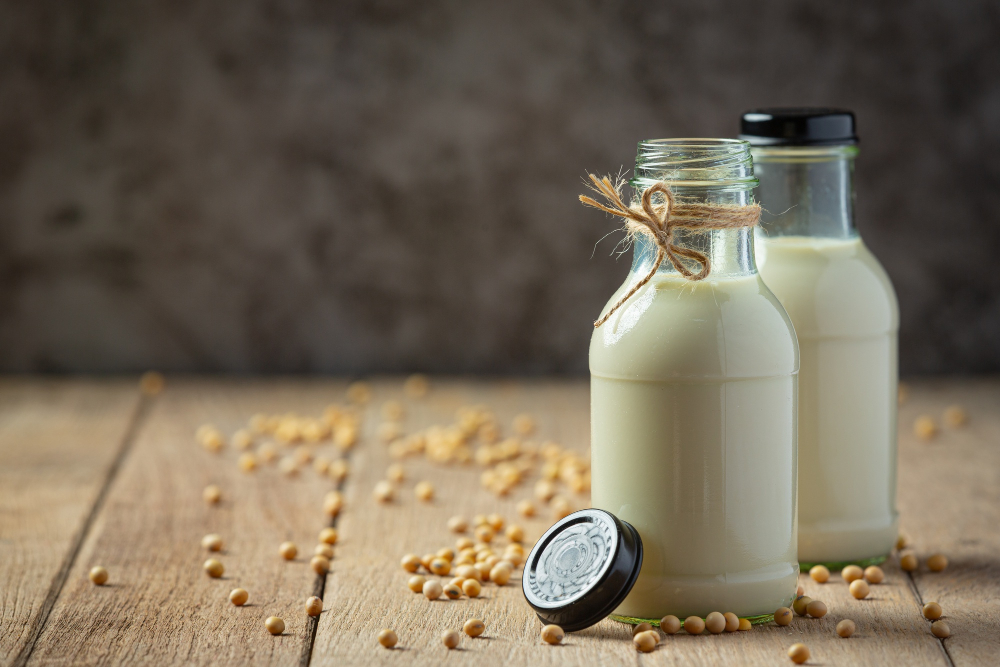
Soy Milk
Soy milk has about 8 grams of protein per cup, which makes it a great choice for those looking to get their daily dose of protein. Most brands will also add extra nutrients like calcium, vitamin D and omega 3 fatty acids to make sure you’re getting the most out of your drink.
Soy milk can be used in many recipes, such as smoothies or desserts. It can also be used as an alternative to dairy milk if you’re lactose intolerant or vegan/vegetarian.
Beans
Beans are a great source of protein. Beans are high in fiber and low in calories, which makes them an excellent choice for those looking to lose weight or maintain their current body weight.
Beans can be used in any number of recipes, like soups, stews or casseroles.
Eggs
Eggs are a good source of protein, vitamins and minerals. One large egg contains about six grams of protein and five grams of fat. Though eggs are high in fat, the good kind found in protein shakes is a good source of leucine, which is known to stimulate muscle protein synthesis.
Protein Powder
Whey protein powder can be used to make protein shakes, which can then be consumed in place of meals or snacks. Whey protein is a good source of protein, making it an excellent choice to meet your daily protein needs.
It can also be mixed with milk or water to make a protein-fortified drink.
Fish
Fish is a popular source of protein. It contains lean protein that’s high in omega-3 fatty acids, which help reduce inflammation, lower triglyceride levels and increase HDL (good) cholesterol.
Fish also contains a lot of phosphorus, which is essential for healthy bones and teeth. There are plenty of fish that are good sources of protein. Tuna, salmon and trout are all great choices because they contain high amounts of omega-3 fatty acids.
Other fish options include catfish, cod, halibut, mackerel and perch.
Not only is fish a rich source of protein, but it is also a good source of omega-3 fatty acids that have numerous benefits for the body.
These include, but are not limited to, improving brain and heart health, combating inflammation and lowering blood pressure levels
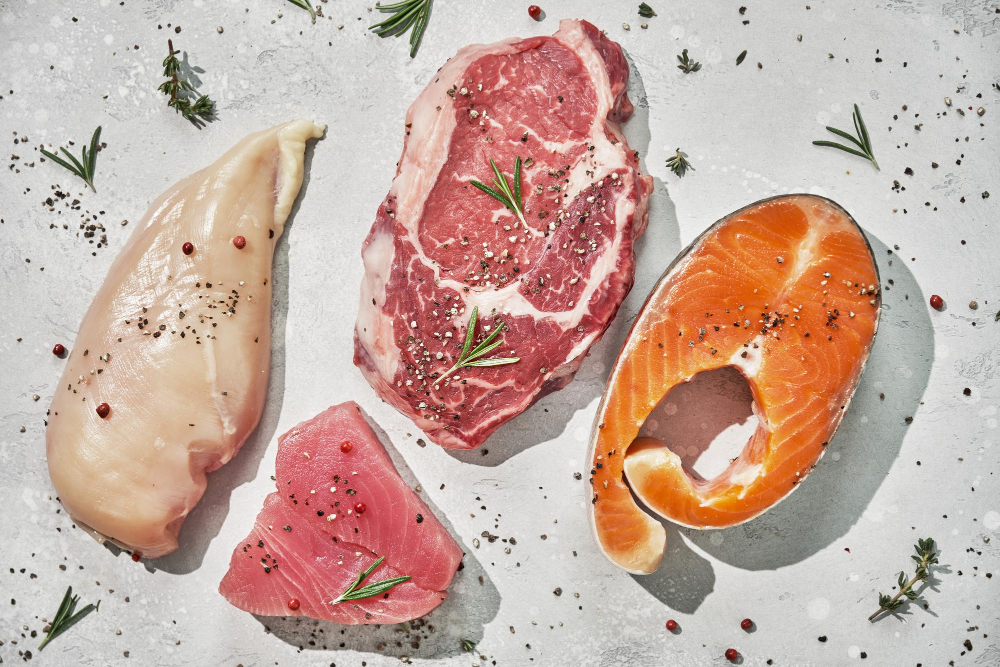
Beef
Beef is a highly bioavailable form of protein that can help you build muscle. It contains all essential amino acids and is low in calories, fat and sugar.
One cup of steak has about 70-86 grams of protein, which is about 25% of the daily protein requirement for a moderately active male.
Poultry
Poultry is a good source of protein and contains no saturated fat. One cup of cooked turkey has about 26 grams of protein, one cup of cooked chicken has about 21 grams of protein and one cup of cooked white meat contains about 11-14 grams of protein.
Chicken breast is one of the best sources of protein out there. It’s very lean and low in fat, which makes it perfect for anyone looking to lose weight or improve their body composition. Chicken breast can be used in any number of recipes and meals, making it very easy to fit into your diet plan.
Pork
Pork is a lean source of protein and is also a good source of minerals and vitamins, such as selenium, zinc and vitamin B-12. A cup of pork tenderloin has about 23 grams of protein and one cup of baked beans contains about 22 grams of protein.
Sunflower seeds
Protein in sunflower seeds is composed of a high percentage of essential amino acids and is an excellent source of protein. It contains all the nine essential amino acids that must be present in the diet to maintain health and is also a good source of unsaturated fats.
The sunflower seed has a high fiber content, which causes a softening effect on the digestive system and helps to reduce constipation.
Sunflower seeds are rich in phytosterols and have other beneficial compounds such as vitamins, minerals, antioxidants, and enzymes. These substances help to prevent cancer, lower cholesterol levels, improve blood pressure regulation, regulate blood sugar levels, protect against heart diseases, act as an anti-inflammatory agent for pain relief in arthritis and osteoarthritis, and boost immunity.
Conclusion
Protein is important for building and maintaining muscle mass. It’s found in meats, fish, eggs, legumes, dairy products, and soy products. The best way to increase your protein intake is to eat more foods that are high in protein.
To gain muscle, you need to eat a diet high in protein and carbohydrates and low in fats. You can have a protein shake after your workout to help you meet your daily protein requirements easily.

